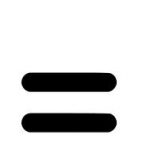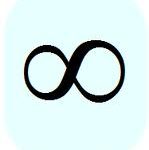Diamant = ∞ (or should that be “= diamant ∞”?) Posted by róislín on Jun 5, 2012 in Irish Language
(le Róislín)
In the last blog, we talked about diamonds, and the various forms of the word in Irish (diamant, diamaint, na ndiamant, srl.).
Meanwhile, I’ve been racking my brain to come with a catchy translation of the now-classic phrase “A diamond is forever.” Here I was thinking it probably went back to some 19th-century essay on beauty or wealth, and it turns out the line was actually created for De Beers in 1947 by an advertising copywriter.
Coming up with an Irish translation of “A diamond is forever” is tricky, because what makes the phrase so effective is that it pushes English grammar to the edge but still makes an immediate impact. It would be much easier to translate a sentence like “A diamond lasts forever” but that doesn’t have quite the same panache. How much panache does it have? Well, as it happens, the phrase (in English, of course) was named the best advertising slogan of the twentieth century by Advertising Age magazine in 2000, a tribute to its effectiveness.
And who was that inspired copywriter? A little sleuthing reveals her name – Mary Frances Gerety, of Wayne, Pennsylvania, who passed away in 1999 at age 83. So, in a way we’re coming full circle, since Mary Frances Gerety is about as Irish a name as one could find, short of the actual Irish language version. As Gaeilge, her first and middle names would be Máire Proinséas (though I have no particular reason to suspect that she ever used these spellings). The surname Gerety comes from “Mag Oireachtaigh,” with “Mag” as a variation of “mac” when it comes before vowels. Speaking of variations, there are at least 17 ways in which this Irish surname has been anglicized, including Gerrity and Garaty, as well as others that make the “mac” element more obvious, like MacGeraghty and MacGarty. An “oireachtach” is a member of an assembly. Although the word is not common in Irish today, several words related to it are, such as oireachtas (a deliberative assembly, a gathering, a festival) and oireacht (an assembly of freemen).
It was intriguing to find out that the credit for this phrase goes to an Irish-American woman. I suppose one could say that the Irish (including members of the Irish diaspora) have always had a way with words!
I’ve almost given up on translating the phrase using any form of the verb “to be.” They just don’t ring right, at least not to “mo chluas.” So maybe I’ll just settle for the rebus-ish “Diamant = ∞,” using the symbol for “infinideacht.” Barúil ag duine ar bith faoi sin?
What are the actual Irish words for “forever?” Well, there are several choices, among them:
go deo [the slender “d” is pronounced almost like a “j,” so “deo” is almost like “joe,” not like the Latin “deo” of “in excelsis,” nor like Harry Belafonte’s “Day-o”!
go brách (as in “Erin go braugh,” the typical anglicized version)
choíche [KHEE-hyuh, the two “ch’s” are pronounced differently: the first is “broad,” like the German “ch” in “Buch” or “Achtung,” and the second is “slender,” and sounds like the initial “h” sound in English “humid,” “human,” or the Welsh “Huw” (Hugh).
And there’s also “abú,” which is more of a battle-cry or rallying slogan, as in “Lámh Dhearg abú!” and more recently, the GAA’s “Camán Abú” and “Peil Abú.“
OMD (i.e., Ó mo Dhia, the Irish equivalent of “omg”), now that we’re on the “forever” track, I guess the next stop will be “BFF” as Gaeilge. Which actually opens up lots of interesting possibilities, given the possible variations on the words “cara” (friend) and “cairde” (friends). Till then, but sooner than Lá Philib an Chleite, slán ó Róislín
Gluais: Lá Philib an Chleite, literally “the day of Philip of the Feather,” but equivalent in tone to “Tibb’s Eve” (the day that never comes, except i dTalamh an Éisc, where apparently “Tibb’s Eve” can mean December 31st.)

Build vocabulary, practice pronunciation, and more with Transparent Language Online. Available anytime, anywhere, on any device.







Comments:
Mike O’Regan:
Rinne mé iarracht le déanaí Gaeilge a chur ar an teideal scannáin “Diamonds are Forever”. Céard a cheapann tú faoi “Is Buan na Diamaint”?